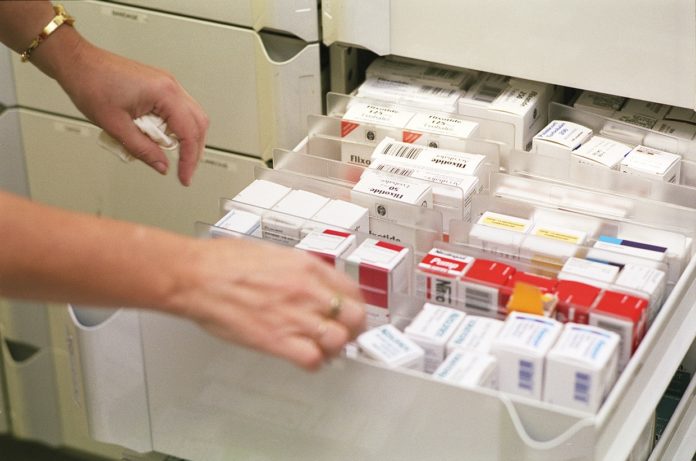
SOME chemists are selling their patients prescription information to a global health information company which sells it on to pharmaceutical companies trying to boost their sales.
Doctor and consumer groups have expressed outrage about the practice they fear may impinge on patient privacy.
After News Corp drew the Department of Health’s attention to the profit making venture it asked the Privacy Commissioner to investigate.
The Australian Privacy Commissioner Timothy Pilgrim warned chemists against a similar prescription data for profit arrangement in 2013 that involved linking doctors names to the data.
“I am concerned about whether pharmacies will be complying with their obligations under the Privacy Act should collection activities commence,” he told the Pharmacy Guild of Australia.
While the name the doctor scheme did not go ahead the Australian general manager of health information giant IMS, Andrew Sutton has confirmed his company is collecting patients prescription data.
“We do have arrangements with pharmacists to get prescription information,” Mr Sutton told News Corp.
“The purpose is to help us understand how patients and doctors are using medicine in the real world to help our clients, primarily pharmaceutical companies, to get market aligned outcomes,” he said.
Mr Sutton says the information is “all fully encrypted and the anonymous information is not linked to physicians or patients,” he told News Corp.
Mr Sutton said he could not reveal how much chemists were making for selling the information to his company.
“It’s in the hundreds of dollars at a pharmacy level,” he said.
A spokeswoman for the Privacy Commissioner said he had not been informed about the latest arrangement with IMS.
“We requested IMS Health to advise the Office of the Australian Information Commisisoner if it recommenced this program. We have not received any information from IMS Health about the recommencement of this program,” the spokesman said.
The Pharmacy Guild of Australia says it has no involvement with the IMS arrangement and its policy on data collection by thrid parties tells chemists:
“No third party should have access to consumer data unless it is de-identified and for a clear
and approved purpose that complies with privacy laws and other relevant standards”.
The AMA fears the information may have geographic links to chemists which would allow pharmaceutical companies to target doctors in the same area who were prescribing a rival companies medicine.
After News Corp informed the Department of Health about the profit making scheme by some chemists it approached the Privacy Commissioner asking him to investigate.
“The Department of Health has passed this information to the Privacy Commissioner,” a spokeswoman said.
Consumers Health Forum chief Adam Stanevicius expressed grave concerns about the sale of patient prescription data.
“Without some kind of oversight by the Privacy Commissioner we are very concerned about this information changing hands and whether patient identities are protected,” he said.
“We have seen nothing to give us any level of confidence to date,” he said.
Mr Stanevicius questioned whether the information was even the chemists to sell given that the government was paying not only for the prescriptions but subsidising the chemists who dispense the scripts, the doctors who write the scripts and the IT system that ensures chemists get paid.
Australian Medical Association GP spokesman Dr Brian Morton said it was “an amazing invasion of privacy purely for commercial reasons”
“It’s not for research or in the interests of patients and one has to question the ethics of the pharmacies providing this information,” he said.
When doctors released any patient health information for a medical trials or to an insurer they had to get the patients consent and chemists should also have to tell patients they are selling their prescription information, he said.
The profit making venture comes as the government is negotiating a new $15 billion taxpayer funded pharmacy agreement with chemists.
An Australian National Audit Office investigation found major shortcomings with the current agreement including the fact that the Pharmacy Guild could not explain how many staff it employed with $29 million it received to administer government programs.
Source: News.com.au
